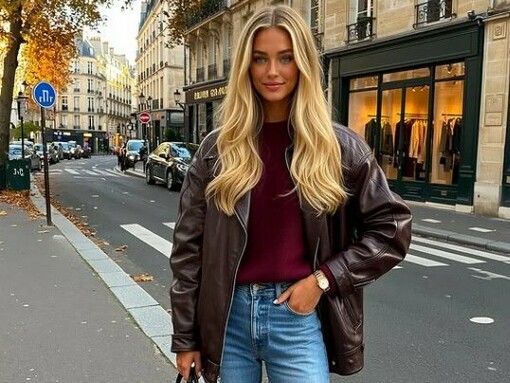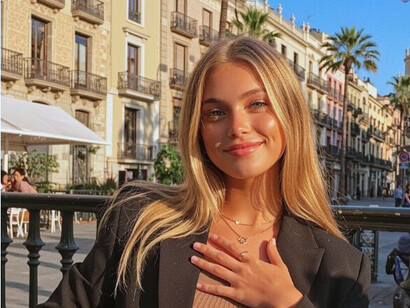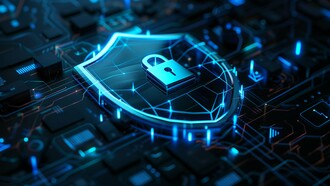Imagine scrolling through Instagram and you notice an influencer who's promoting a new fashion trend. To you, the influencer seems flawless. But are they? What do you do when you suddenly find out that they don't even exist?
Or imagine that you are inside the cinema watching a brand new film starring Marilyn Monroe. The year is 2025, several decades after the actress died.
What you're reading is not science fiction. It's what the entertainment landscape looks like now in present-day 2025. It's one where AI is blurring the lines between simulation and reality.
Technology has literally reshaped creativity, games, and the expectations of audiences. This has resulted in the rise of songs composed by AI and deepfake actors.
However, is this not a step that leads us towards losing the human touch in art? Or is it a welcome and thrilling evolution?
Let's find out how AI is changing the rules of entertainment and what the implications are for the future of stardom.
The rise of the machines: meet the AI celebrities dominating 2025
The days when fame was the exclusive reserve of stars who are actually human beings are long gone. These days, the spotlight has been stolen by digital personalities.
Digital actors are landing roles in movies. Rather than hire human extras, some studios now cast AI models.
Musicians generated by AI now exist. A good example is FN Meka. This is a rapper that AI created. Despite the backlash over how authentic these AI-generated musicians are, Meka and his kind already have record deals.
Virtual influencers are now reality. They don't just sell products; they also post curated lives and even “date” human celebrities. For instance, Noonoouri has collabs with Dior, while Lil Miquela boasts of 2.3 million followers.
These synthetic stars are never involved in scandals, never grow old, and can be programmed so that the maximum marketing benefit can be derived from them. However, can audiences make genuine connections with them?
Beyond the uncanny valley: why Deepfake cinema is going mainstream
Bringing legends back to life is one thing that Hollywood loves to do. And with the use of today's AI, they have succeeded in making it eerily convincing.
De-aging actors: It is a standard process and expectation now. Just think of movies like The Irishman, Gemini Man, and others. However, today's AI makes all those previous titles look elementary, as it can now generate complete performances from scratch.
Resurrecting those that have departed: It utilises a deepfake technology that was used to cast James Dean in a new role in the movie ‘Back to Eden.’ Debates have now started about nostalgia vs. ethics because of this issue.
The debate about the synthetic actor: Some of the questions people now ponder over include who owns their digital likeness? Should royalties be paid to an AI version of an actor?
Some viewers continue to marvel at the technology powering this new movie-making process. For others, they feel it's too unsettling. For the latter set of people, they compare it to viewing a puppet show that uses high-tech.
Who owns a digital star? The legal and ethical minefield
Who is supposed to be paid if an AI generates a song in the style of Taylor Swift?
Who profits if a virtual influencer signs a brand deal? As you can imagine, the legal system is struggling to keep pace with what is happening right now. But there seem to be so many legal challenges to tackle, such as:
Labour concerns: While voice artists and background actors are being replaced by AI, unions are fighting to preserve human jobs.
The 'Right to Replicate': Should famous people have control over their AI doubles? Bruce Willis did not seem to mind when he sold his likeness for deepfake adverts. However, not all celebrities agree.
Copyright chaos: Existing art is used to train AI models. This has led to lawsuits from writers, actors, and musicians who all claim that their permission was not obtained before their work was used.
The question that still remains unanswered is: can anyone be the owner of the digital ghost of a person?
AI vs. human creativity: is the music industry facing a crisis?
AI can now generate lyrics, melodies, and even vocals. In fact, to create hit songs, music studios and producers no longer require human composers.
AI generated hits: Some artists are already feeling obsolete because there are tracks that now top charts that were written entirely by AI. A good example is “Electric Dreams.”
The soul debate: Can the emotion in music be truly captured by a machine? Or is AI merely remixing what has already been made by humans?
Hybrid creations: AI is being embraced by a couple of musicians like Grimes. For a few, fans can use her voice in their own songs.
Even though AI tools can assist with inspiration, a lot of people still argue that a human heart is needed for crafting true artistry.
Virtual fan culture: how audiences are embracing (or rejecting) synthetic stardom
Making connections is the primary role of fandom. However, can one enjoy the presence of a hologram of their favourite celebrities?
The appeal of AI idols: A CGI singer known as Hatsune Miku and other virtual pop stars are known for selling out concerts where their fans cheer for a projection.
The backlash: Some fans have refused to accept AI influencers. They say that these synthetic stars possess no real personalities and are mere “corporate puppets.”
The middle ground: While there are those who enjoy content created by AI, they still desire to see the flaws of human beings, such as an actor's unscripted interview or a singer's raw live performance.
What is the outcome? AI can provide entertainment. However, can it inspire devotion?
The future of entertainment: will AI erase human stars—or elevate them?
So, where are we going to go from this spot?
The human edge: Real stars might concentrate on live performances such as unscripted moments and concerts that AI cannot replicate.
Personalised entertainment: AI might soon be able to generate music tailored to your mood or design customised films where you're the protagonist.
A new era of creativity: Rather than being a replacement for artists, AI might turn out to be a very good tool, something similar to the way CGI enhanced, instead of outrightly replacing, practical effects in movies.
The show must go on—but who’s really performing?
AI is already here and it's not going away anytime soon from entertainment. It offers possibilities that are dazzling and questions that are tough.
While boundaries continue to be pushed by deepfake cinema and synthetic stars, something intangible—soul, spontaneity, and human imperfection—still feels irreplaceable.
Who knows? Maybe the future is not about AI being a replacement for artists but rather a challenge for them to create in ways that only human beings can create. After all, the best and most loved performances, songs, and stories have always been about connections. This is something that no algorithm can pretend to have.
What do you think? If a movie had a deepfake star in it, would you watch it? Or can real talent remain unbeatable? The floor is open and the curtains are up. The debate is just starting.















